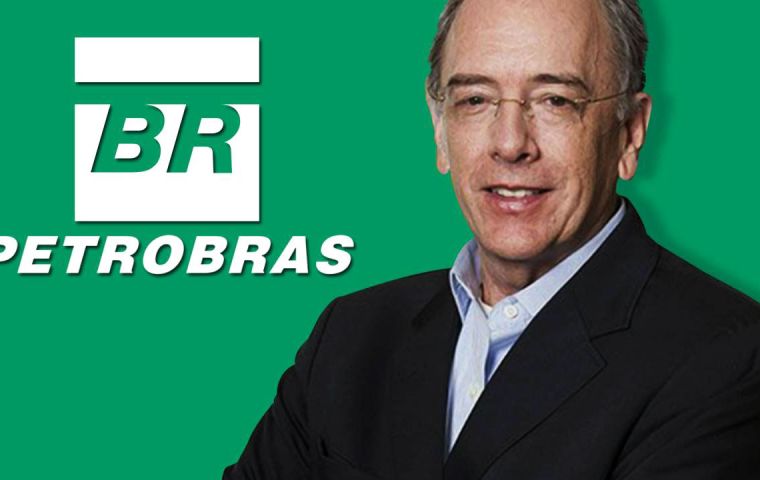MercoPress. South Atlantic News Agency
Petrobras no longer an arm of government to control inflation, pledges CEO
 Petrobras, which hasn’t adjusted gasoline and diesel prices for more than a year, will set prices at or above parity with international levels, Parente said
Petrobras, which hasn’t adjusted gasoline and diesel prices for more than a year, will set prices at or above parity with international levels, Parente said Petrobras is reading to announce a domestic fuel policy that will avert costly subsidies that drained profits during Brazil’s previous government, Chief Executive Officer Pedro Parente said in an interview. For years fuel prices were manipulated as part of the government's policy to keep inflation under control.
Petrobras, which hasn’t adjusted gasoline and diesel prices for more than a year, will set prices at or above parity with international levels, Parente said in an interview with Bloomberg. The company plans make changes more frequently on factors including international prices, the exchange rate and its market share, he said.
From now on, Petrobras will only benefit from the gap between domestic prices and the international market, not lose, Parente said.
While Petrobras plans to maintain domestic prices above international levels, it won’t announce a specific formula that would trigger automatic increases or decreases, Parente said. The company has been selling gasoline and diesel at a premium for almost two years, helping to recover an estimated US$35 billion it lost subsidizing imports from 2011 through late 2014 during the commodities boom.
The outlook on pricing was one of the main questions from investors on a road show this month, Parente said, adding that Petrobras will no longer let the government dictate corporate decisions. “We are not supposed to be an arm of the government to control inflation.”
While Petrobras has a virtual monopoly on refining in Brazil and the most robust import infrastructure, it has seen increased competition as the business has become more profitable. The company’s chain of service stations has seen its share of the market decline in recent years.
Competing fuel retailers including Ultrapar Participacoes SA’s Ipiranga unit and Raizen, a joint venture between Royal Dutch Shell Plc and Cosan SA Industria & Comercio, have increased fuel imports to capture these gains.




Top Comments
Disclaimer & comment rules-

-

Read all commentsHeadline: “Petrobras no long an arm of government to control ....”
Oct 13th, 2016 - 05:13 pm +1Mercopiss no long to employ English-speaking proofreaders.
I beg to differ with you, CEO, PB, In fact, PB can be a very effective arm of the government to drastically reduce the inflation and still generate profits.
Oct 18th, 2016 - 01:39 pm 0Commenting for this story is now closed.
If you have a Facebook account, become a fan and comment on our Facebook Page!